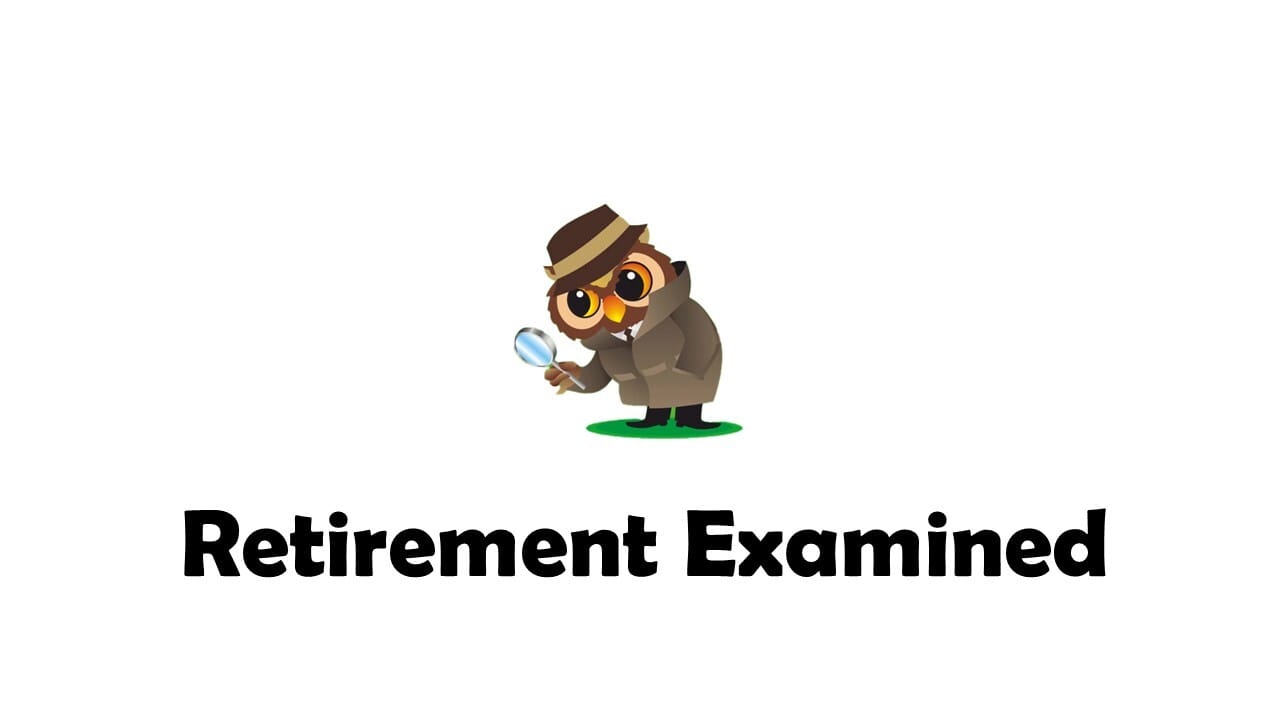- Retirement Examined
- Posts
- This Week's Retirement Round-Ups
This Week's Retirement Round-Ups
5-Minutes Of News, Strategies, & Tips

The weekly email keeping you up to date on exciting Retirement topics in an enjoyable, entertaining way for free.

Special Announcement
Novus Financial Group is in the process of scheduling its first seminar of 2024. The topic of the seminar Estate Planning and our special guest speaker is Lori Posani of the Posani Law Office (https://www.posanilawoffice.com). The seminar will be held in Columbus, OH. Stay tuned for more information on the agenda and how you can reserve your seat(s).
The Great ‘Indirect Tax’ & What It Means To Us - Recent Decisions of the Fed
by Eric Seyboldt
The U.S. government's borrowing has significantly increased in recent times, leading to a wider gap between its spending and income from taxes. In fiscal year 2024, the deficit has already surged to $510 billion, on the back of a staggering $1.7 trillion deficit recorded at the end of 2023. To mitigate this fiscal deficit, the U.S. Treasury has strategically increased its bond sales for the third consecutive quarter. The latest adjustments have seen a $3 billion monthly increase in the auction sizes for both two-year and five-year notes, setting new records. The Treasury signals that this year might witness the last of such increases, potentially alleviating concerns of market oversupply.
Amid these fiscal adjustments, the Federal Reserve's monetary policy actions have further complicated the economic outlook. The Fed, under Jerome Powell's leadership, has raised interest rates, significantly impacting borrowing costs. Despite market optimism and early predictions of rate cuts, the Fed has adopted a cautious approach. It has maintained the federal funds rate target at between 5.25% and 5.5% for the fourth consecutive meeting, emphasizing the need for more evidence of inflation moving towards its 2% target before considering any rate cuts.
What does all of this mean to us, the typical American consumer? Imagine, you're out shopping but instead of buying shoes or gadgets, you're in the market for a loan – maybe for a new car or a cozy house. Here's where the Federal Reserve steps. Kind of like the DJ at a party, it starts adjusting the volume of the economy with its interest rate lever.
When the Fed cranks up the interest rates, it's like they're turning down the economy's volume. Borrowing money suddenly becomes more expensive. Think of interest as the extra amount you pay on top of what you borrowed; when rates are high, that "extra" can get pretty hefty, indeed. This means your dream car, or house might suddenly seem a bit out of reach, or at least more costly to finance.
For the typical consumer, high interest rates mean higher monthly payments on new loans. And it's not just loans – credit card interests can skyrocket too, making those impulsive purchases even more painful when the bill comes due. Have you seen your insurance bill lately?
So, how does this act like an 'indirect tax'? Well, when you're shelling out more on interest, you've got less cash to spend on other things, like that fancy dinner, the weekend getaway, even upgrading your worn-out fridge – all might need to wait. The higher interest rates silently eat away at your purchasing power leaving you feeling like you've got a hole in your pocket.
In essence, while not a tax in the traditional sense, higher interest rates can reduce your disposable income, squeezing your standard of living. Just like taxes, they're a financial obligation that can't be ignored, subtly shaping your spending habits and lifestyle choices. Keep that in mind next time you hear the Fed's making a move or when you hear that the government wants more spending!
TIP OF THE WEEK
Smart Retirement Strategies: How to Make Your Money Last as Long as You Do! Part II of IV

by Eric Seyboldt
In Part II of this series, let's sit down with a cup of coffee and chat about something that might not be as cozy as our coffee, but is incredibly important – managing your post-retirement budget. Yes, it's about ensuring that your golden years are just that: golden, without the cloud of financial worries.
Navigating expenses in retirement can seem daunting, but it's all about adopting a savvy approach to your budget. Let’s dive into how you can stretch those retirement dollars and truly enjoy this new chapter of your life.
1. Keeping an Eye on the Budget Ball: First things first, knowing where your money goes is half the battle won. It sounds basic, but tracking your spending can reveal surprising insights. Maybe that weekly brunch is costing more than you thought, or subscriptions you rarely use are nibbling away at your funds. Awareness is your best friend here.
2. Trimming the Fat (Wisely): Once you've got a handle on where your money's going, it's time to play financial gardener – trimming the unnecessary expenses but keeping what brings you joy. Love your garden but not the high cable bill? It might be time to cut the cord and explore more cost-effective entertainment options. This doesn't mean scrimping on everything; it's about prioritizing what truly adds value to your life.
3. Healthcare – The Non-Negotiable: If there's one area you shouldn't skimp on, it's healthcare. Unexpected medical expenses can be a major budget buster in retirement. Investing in a good health insurance plan and setting aside a healthcare fund can save you many sleepless nights. Remember, being penny-wise and pound-foolish with your health can cost more in the long run. Note - keep an eye out for future content on Long-Term Care & Assisted Living planning.
4. Embrace Flexibility: Your retirement budget isn’t set in stone. Life changes, and so will your spending needs and habits. Regularly reviewing and adjusting your budget will keep you in tune with your finances. Maybe you'll discover a new hobby that's worth reallocating funds for, or perhaps you'll find you're spending less than anticipated in other areas.
In essence, managing your post-retirement expenses is about striking a balance – enjoying the fruits of your labor without the worry of running out. It’s perfectly possible to live a fulfilling, vibrant life in retirement with a bit of planning and adaptability.
Remember, retirement is about enjoying your time, exploring new hobbies, and spending precious moments with loved ones. With a smart approach to your budget, you can ensure that your retirement years are as carefree and enjoyable as you’ve always dreamed they would be. Happy budgeting!
Novus Financial Group recognizes this dilemma and suggests that you get in touch with us so that you don’t have to plan for less disposable income in the coming years.
Client Q & A of the Week
Client: Eric, how much money do I need to have saved by retirement if I don’t want to risk running out of money “before my will matures”?
Eric: Determining the amount of money you need to have saved by the time you retire is a critical component of retirement planning, and it's a question that requires a nuanced approach, taking into account several personal and financial factors. As a financial advisor with expertise in retirement planning, I'll guide you through the considerations and methodologies that can help you arrive at a figure that aligns with a secure and fulfilling retirement.
The traditional rule of thumb, often referred to as the "4% rule," suggests that you should save enough so that you can withdraw 4% of your retirement portfolio annually, adjusted for inflation, without depleting your funds over a 30-year retirement period. However, this is a general guideline and not a one-size-fits-all solution. Your specific needs may vary based on your lifestyle, expected lifespan, health, inflation, investment returns, and other personal factors.
To personalize your retirement savings goal, consider the following steps:
Estimate Your Retirement Expenses: Begin by estimating your annual retirement expenses, considering necessities like housing, food, healthcare, and transportation, as well as discretionary spending on travel, hobbies, and entertainment. It's important to account for inflation over time, which can significantly increase your future expense needs. Hopefully, inflation won’t be at today’s current levels for to may years!
Account for Income Sources: Factor in predictable income sources in retirement, such as Social Security benefits, pensions, annuities, or part-time work. The difference between your estimated expenses and these income sources is the gap that your savings will need to fill.
Consider Your Retirement Duration: Longevity risk is the risk of outliving your savings. With life expectancies increasing, planning for a retirement that could last 30 years or more is prudent. Adjust your savings goal based on your health and family history. Also, consider that the last several years of your life may require professional help via an assisted living facility. Good facilities can currently cost $60,000-$80,000 per year per person. Imagine what these costs will be in 15 or 20 years!
Adopt a Conservative Withdrawal Rate: Given market volatility and uncertainty about future returns, adopting a conservative withdrawal rate lower than the traditional 4% may provide additional security. Adjust this rate based on your risk tolerance and investment strategy.
Use Financial Planning Tools: Leverage retirement calculators and financial planning software, or work with us to project your savings needs more accurately. These tools can simulate various market conditions and retirement scenarios to help refine your savings goal.
Ultimately, the amount of money you need to save for retirement is deeply personal and varies widely among individuals. As a financial advisor, I emphasize creating a tailored plan that reflects your specific circumstances, goals, and values. Proactive planning, regular reviews of your financial plan, and adjustments and rebalancing of your savings and investment strategies will help ensure that you are well-positioned for a comfortable retirement.
Please feel free to email Eric at [email protected] if you’d like to ask any questions or request information on retirement topics that are on your mind.
Quote of the Week
“There are only two ways to live your life. One is as though nothing is a miracle. The other is as though everything is a miracle.”
REAL ASSETS, Invest Like the Ultra-Wealthy

Liquid Gold from The Bourbon Reserve
Do you need help determining where to put your retirement assets to protect them from the current economic mess? Are you worried about having to work another decade to recover from your losses in your 401k or IRAs? Over the past 2-3 years, government spending has caused retirement accounts to go down 25% and pension plans have lost over $3 trillion in 2023 alone.
Ask us how to Rollover a portion of Your IRA or 401k To A GOLD IRA (link below) or a BOURBON IRA (www.bourbon.fund/how-it-works/) and:
Safeguard your assets from the collapsing dollar
Incorporate the ‘REAL ASSET’ class into your portfolio like the ultra-wealthy
Hedge against the current high-inflation conditions
Protect your retirement assets against economic crises
Just get in touch. We make it easier than ever.
CONNECT WITH US
Feedback or Questions?
You’re invited to get in touch with us if you’d like to find out how the Novus Financial Group can help you on your journey to a happy, fulfilling life in Retirement.
We have a lot of great information, as well as podcasts from our radio show ‘The Financial Insider’, and tools on our website - www.novusfg.com.
Office: 614-943-2265
Feel Free To Forward Retirement Examined To A Friend and Have Them Subscribe By Clicking The Button Below:
Investment advisory services offered by duly registered individuals on behalf of CreativeOne Wealth, LLC a Registered Investment Adviser. CreativeOne Wealth, LLC and Novus Financial Group are unaffiliated entities.
The content we provide here isn’t financial advice and cannot be taken as such. Please speak to your financial advisor before making any investment decision. Also, note that every investment comes with its own risks and drawbacks. Lastly, we would like to remind you that past results cannot guarantee future returns.
This website contains one affiliate link. When you click on the link and make a purchase, we may receive a commission at no additional cost to you. We only promote companies that we have personally used or researched and believe will add value to our readers.
